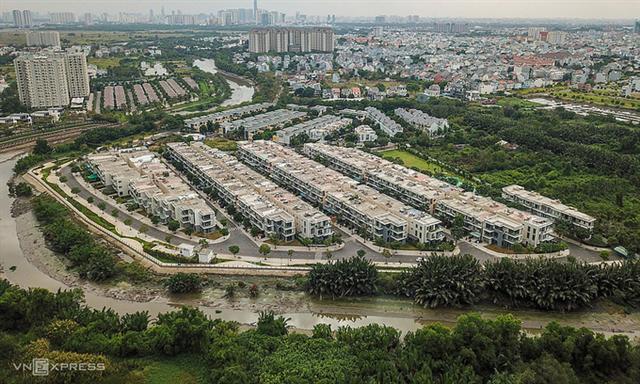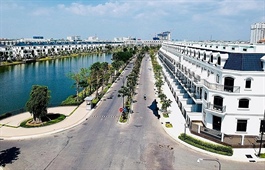Vietnam urged caution on credit for property market
Vietnam urged caution on credit for property market
HSBC has advised Vietnam to be cautious about provision of credits for its property market, considering it fraught with risk.
Low-rise development seen in the eastern HCMC. Photo by VnExpress/Quynh Tran.
|
The bank says caution is needed despite the sector making an important contribution to the country’s Gross Domestic Product (GDP).
In its regular June report, the HSBC notes that property prices, especially in the luxury segment in Vietnam’s big cities, have increased over the past two years.
Last year, prices of luxury apartments climbed up 9 percent year-on-year, while those in the affordable and mid-end segments rose 4-5 percent.
The market share of high-end and luxury segments, meanwhile, surged to over 70 percent in 2020 from below 30 percent in 2019.
Although foreign direct investment in Vietnam’s real estate market in May soared by over 200 percent against the same period last year, most of the capital was still focused on production. The HSBC deduced that property prices rose mainly due to domestic investors.
As it had happened in many other nations, this was the result of loosened monetary policies that created favorable conditions for lowering interest rates and increasing liquidity.
Credit growth in the Vietnamese property sector rose 15 percent in January and February over the same period last year, surpassing the target of 12 percent set by the State Bank of Vietnam, the country’s central bank. As of mid-April, the credit growth stood at more than 15 percent.
In mid-April, the central bank called on commercial banks to strengthen risk control, announcing that it would tighten control over credit for sectors with potential risks, including the property sector.
According to the HSBC report, the central bank can take stricter control measures if needed. It said watchdogs should strike a balance between strict control measures and limiting credits for property, on the one hand, while minimizing imminent risks posed by Covid-19 to the sector, on the other.
It noted that the property sector was making bigger contributions to Vietnam’s GDP at some 8 percent.
Higher property prices would prevent the central bank from further slashing interest rates, the report said.
The report assumed that local authorities were worried the property market could be no longer an essential factor of the economy, so the fact that it was being closely monitored was an encouraging sign.





























